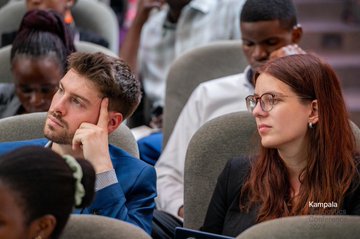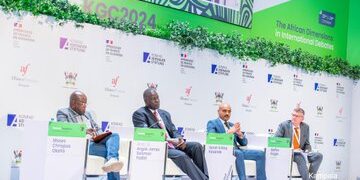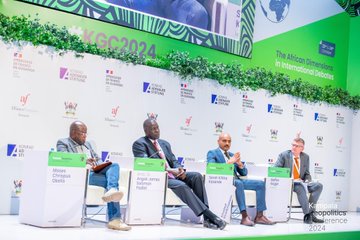What seemed like a mere power struggle between two military leaders in Sudan has deepened regional tensions, caused a severe humanitarian crisis, and attracted foreign military support, according to Nils Wormer, the Director of the KAS Regional Program Security Dialogue for East Africa.
Nils was speaking at the 7th edition of the Kampala Geopolitics Conference which opened Wednesday, October 23, 2024, at the Yusuf Lule Central Teaching Facility Auditorium, Makerere University.
“In the past editions of the Kampala Geopolitics Conference, we did not discuss the numerous security challenges Western Africa is facing. This year, however, we will address this topic,” stated.
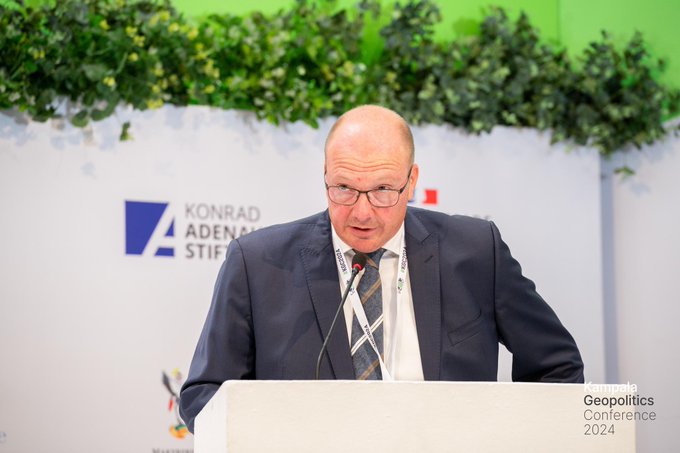
A civil war between two major rival factions of the military government of Sudan, the Sudanese Armed Forces under Abdel Fattah al-Burhan and the paramilitary Rapid Support Forces and its allies under the Janjaweed leader Hemedti, began during Ramadan on 15 April 2023.
A panel titled “What Lies Ahead for Sudan Amidst a Myriad of Failed Interventions” and moderated by Steffen Krüger Director, Konrad Adenauer Stiftung (KAS), Egypt, dived into the failed interventions in ending the Sudan conflict.
Ambassador Dr. Angok James Solomon Padiet, Professor of Political Science, University of Juba, says the Sudanese war is entirely a government war, which is far from over because various interventions have been done, but the governments do not believe in peace talks but rather success.
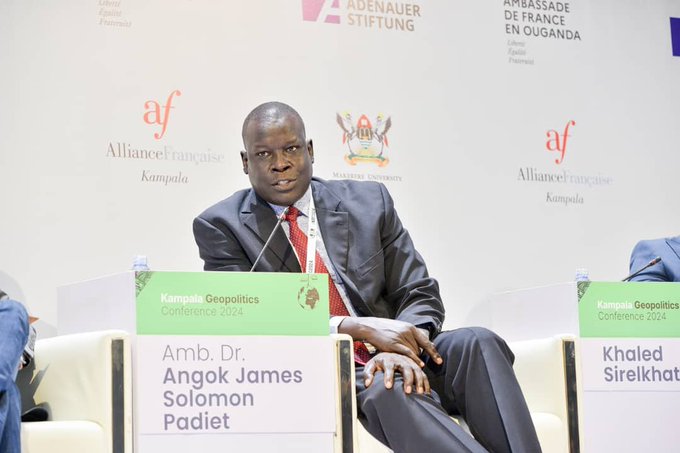
“The way Sudan is affected by the war is the same way that South Sudan is. We look at the war as our war because we are interlinked. A lasting solution to the war in Sudan, will also be a solution to most of our problems in South Sudan,” noted Amb. Dr. Padiet.
He observed that the ongoing war in Sudan is severely impacting South Sudan’s economy, particularly its oil exports which account for over 90% of government revenue leading to delays in payment of civil servant’s salaries.
“The war in South Sudan has gained prominence internationally, to the world but is not as pronounced continentally, in Africa. From our experience in South Sudan, Sudan needs a neutral bully from the Middle East and another from Africa to bring these warring Generals into a room and talk tough to them to end the war.”
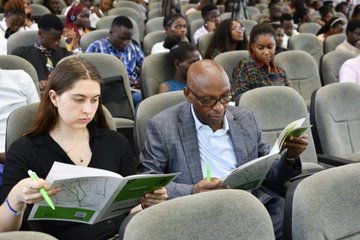
According to him, the military men who are fighting the Sudan war do not believe in peace talks; they believe in fighting, but this war is also greatly worsened by the fact that the militia is fighting against civilians.
Moses Chrispus Okello, Senior Researcher Institute for Security Studies, says what will make the conversation difficult is the network of several actors interested in the conflict.
“I do not foresee a solution that doesn’t address the interests of the UAE, Iran, Saudi Arabia, and other external actors. With Sudan, we are seeing a slow but progressive trend towards a Somali-like situation.”
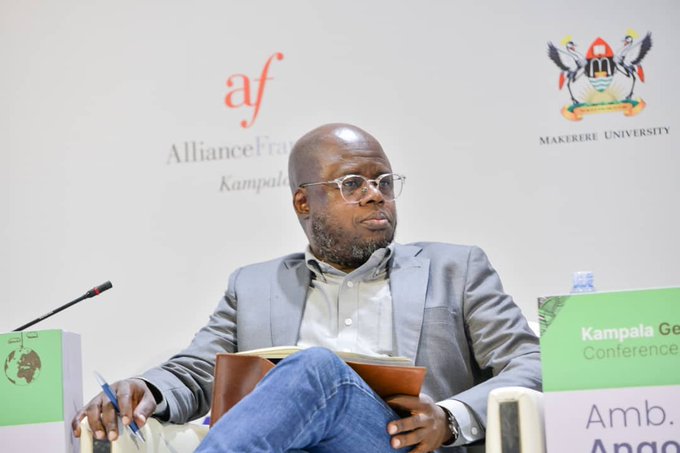
He added: “With Sudan, we are seeing a slow but progressive trend towards a Somali-like situation.”
On a positive note, President Museveni recently offered to mediate the Sudan conflict and has already embarked on the mission to bring the two parties to the negotiating table.
Khaled Sirelkhatem, a Development Studies Expert, says the suggestion of power-sharing won’t work in Sudan as it will be a formula for another war; with recent negotiations stalling hence complicating the path toward sustainable peace and democracy in Sudan.

“We have 25 million people facing acute hunger in Sudan. About 700,000 people are facing famine. 80% of the health sector is out of service.”
Stephen Ojara Okello, a social justice promoter working with the African Youth Initiative Network, said in the intervention to support the victims of regional armed conflicts, there is a need to incorporate interventions to support the affected native dwellers of refugee host communities.
“In Northern Uganda, we are hosting many refugees, causing community wrangles among native community dwellers. This particular issue remains unaddressed.”
